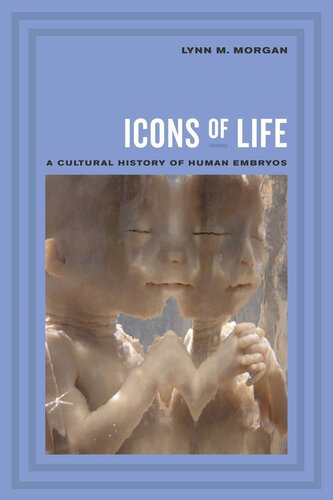

Most ebook files are in PDF format, so you can easily read them using various software such as Foxit Reader or directly on the Google Chrome browser.
Some ebook files are released by publishers in other formats such as .awz, .mobi, .epub, .fb2, etc. You may need to install specific software to read these formats on mobile/PC, such as Calibre.
Please read the tutorial at this link: https://ebookbell.com/faq
We offer FREE conversion to the popular formats you request; however, this may take some time. Therefore, right after payment, please email us, and we will try to provide the service as quickly as possible.
For some exceptional file formats or broken links (if any), please refrain from opening any disputes. Instead, email us first, and we will try to assist within a maximum of 6 hours.
EbookBell Team

0.0
0 reviewsIcons of Life tells the engrossing and provocative story of an early twentieth-century undertaking, the Carnegie Institution of Washington's project to collect thousands of embryos for scientific study. Lynn M. Morgan blends social analysis, sleuthing, and humor to trace the history of specimen collecting. In the process, she illuminates how a hundred-year-old scientific endeavor continues to be felt in today's fraught arena of maternal and fetal politics. Until the embryo collecting project-which she follows from the Johns Hopkins anatomy department, through Baltimore foundling homes, and all the way to China-most people had no idea what human embryos looked like. But by the 1950s, modern citizens saw in embryos an image of "ourselves unborn," and embryology had developed a biologically based story about how we came to be. Morgan explains how dead specimens paradoxically became icons of life, how embryos were generated as social artifacts separate from pregnant women, and how a fetus thwarted Gertrude Stein's medical career. By resurrecting a nearly forgotten scientific project, Morgan sheds light on the roots of a modern origin story and raises the still controversial issue of how we decide what embryos mean.